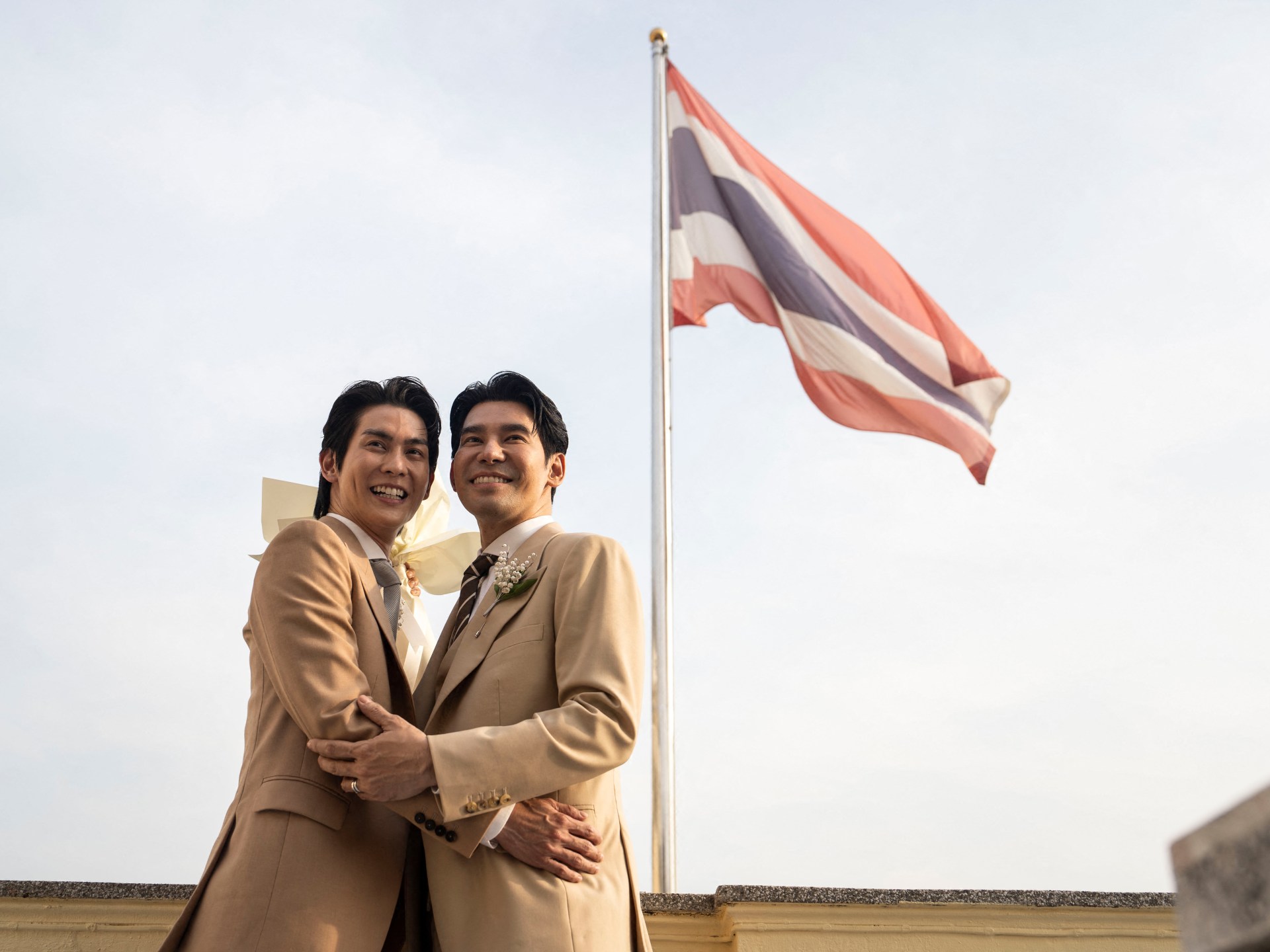

Hundreds of couples are tying the knot in Thailand, as the kingdom becomes the first Southeast Asian nation to legalise same-sex marriage.
The Marriage Equality Act, which was overwhelmingly passed in a historic parliamentary vote last June, was ratified by King Maha Vajiralongkorn in October and comes into effect on Thursday.
list 1 of 3
‘Pink baht’: Thailand’s businesses chase same-sex marriage bonanza
list 2 of 3
Georgia’s parliament approves law curbing LGBTQ rights
list 3 of 3
Hong Kong’s top court rules in favour of same-sex couple rights
end of list
Thailand’s marriage law now uses gender-neutral terms in place of “men”, “women”, “husbands” and “wives”. It also grants the same adoption and inheritance rights to same-sex couples as heterosexual couples for the first time.
Same-sex couples can now also make medical decisions for ill or incapacitated partners, as well as extend personal financial benefits, including state pensions, to their spouse.
Campaign group Bangkok Pride and Bangkok city authorities have organised a mass LGBTQ wedding in the Thai capital, with about 180 couples gathering at the Siam Paragon shopping mall from 8am to register their unions.

“This day is important not just for us, but for our kids as well. Our family will finally become one,” transgender woman Ariya “Jin” Milintanapa told the AFP news agency.
Advertisement
Thailand, which ranks highly on LGBTQ legal and living conditions indexes, now becomes the third country in Asia to legalise same-sex marriage, after Taiwan and Nepal.
The law’s passing marks the culmination of around a decade of campaigning by LGBTQ groups to pass equal marriage laws in Thailand. The Netherlands was the first country to allow same-sex unions in 2001, with more than 30 countries around the world following suit in the years since.
During a celebratory photoshoot last week in advance of the law coming into effect, Thailand’s Prime Minister Paetongtarn Shinawatra emphasised the need for gender identity recognition beyond biological sex.
“Whether male, female or non-binary, people should have the right to identify as they wish,” she said.
“No matter your gender or who you love, love knows no limits or expectations. Everyone will be protected under the same laws.”
Despite opinion polls suggesting overwhelming public support for the move, much of Buddhist-majority Thailand remains traditional and conservative.

Related News

Q&A: Leader of Myanmar’s shadow government talks civil war strategy in 2025

Russia-Ukraine war: List of key events, day 1,045

FBI suspects soldier behind Las Vegas Cybertruck blast suffered from PTSD


